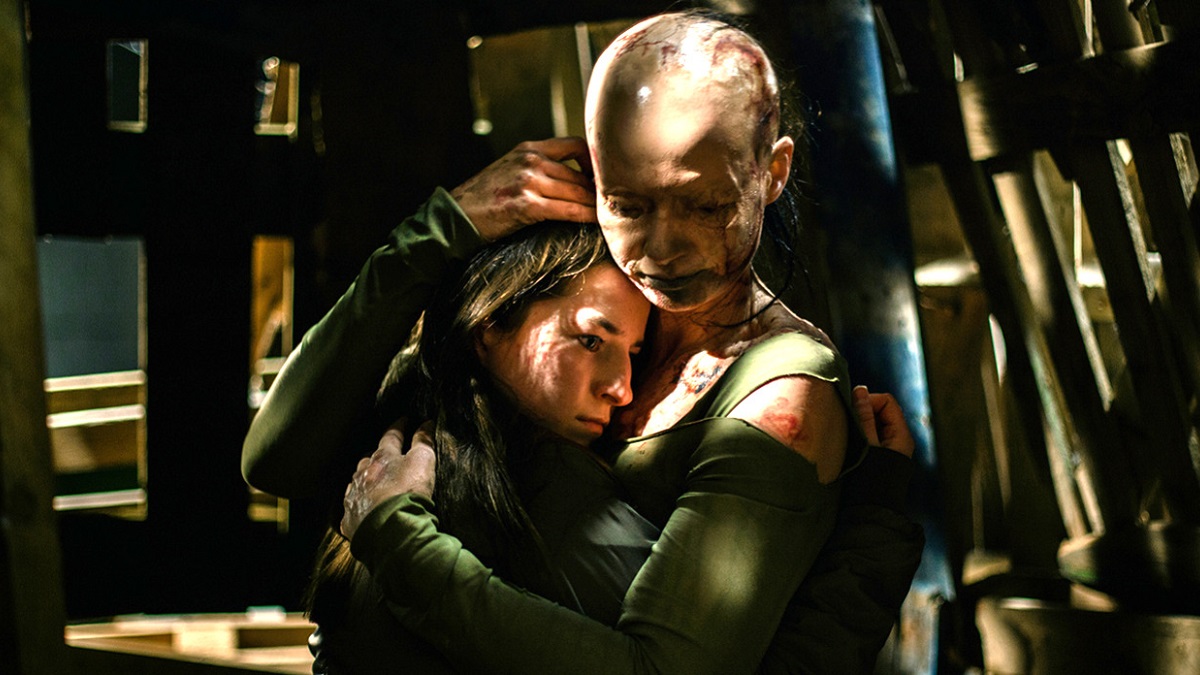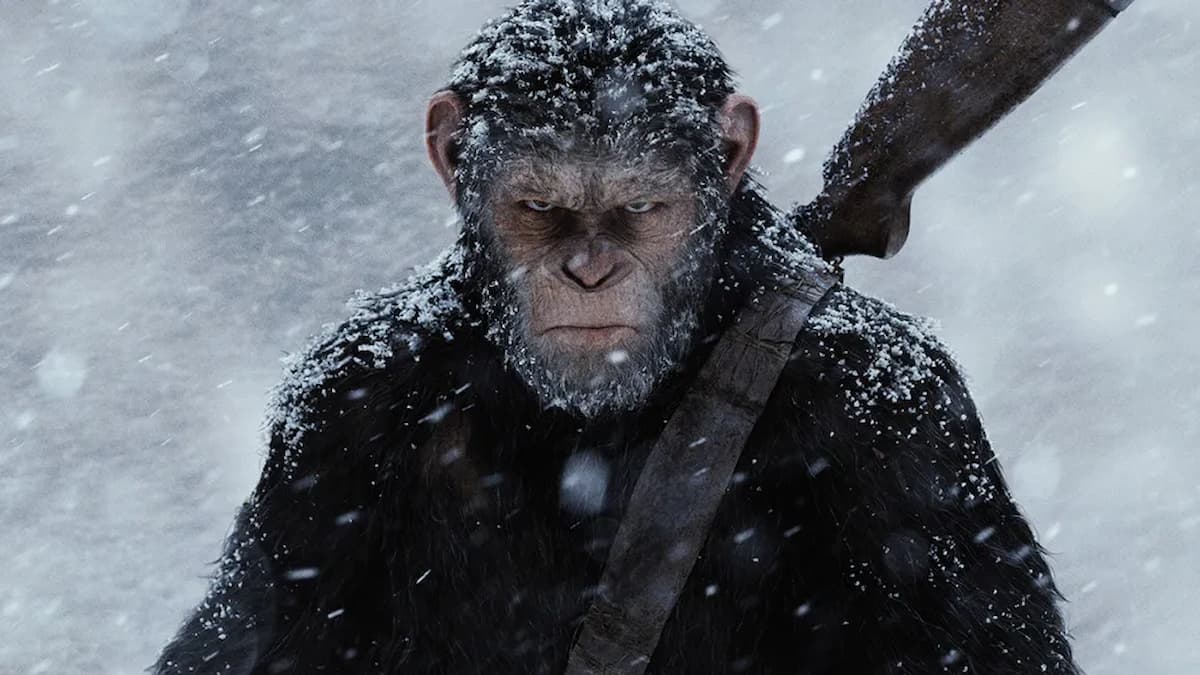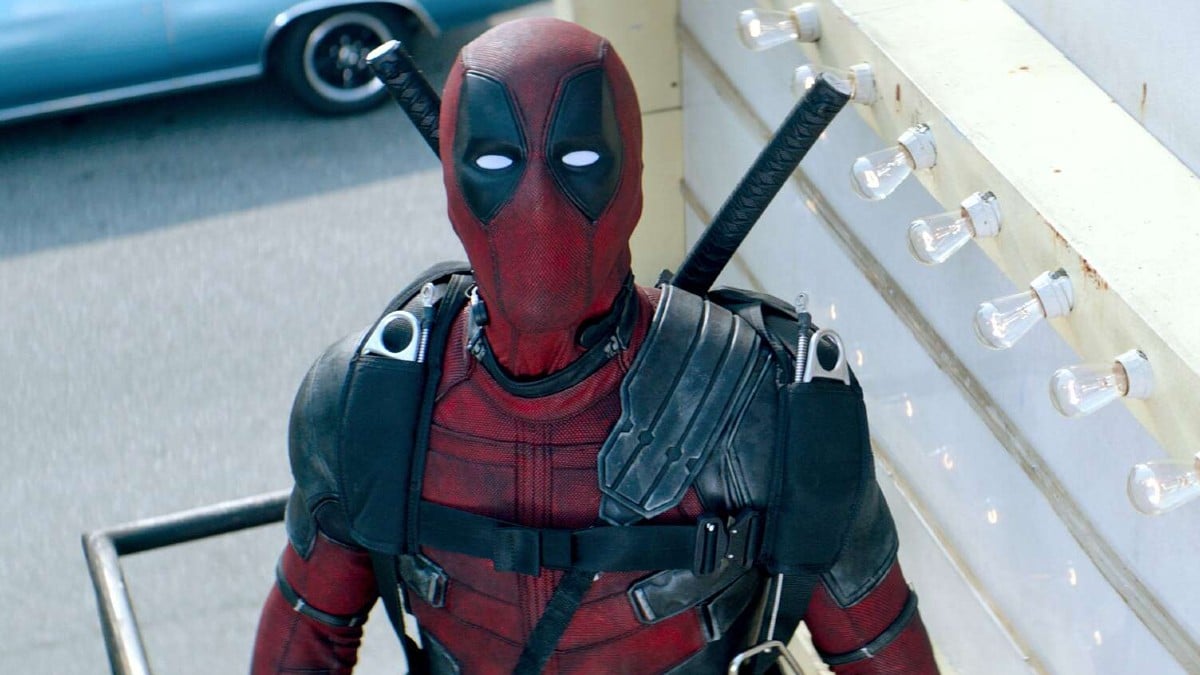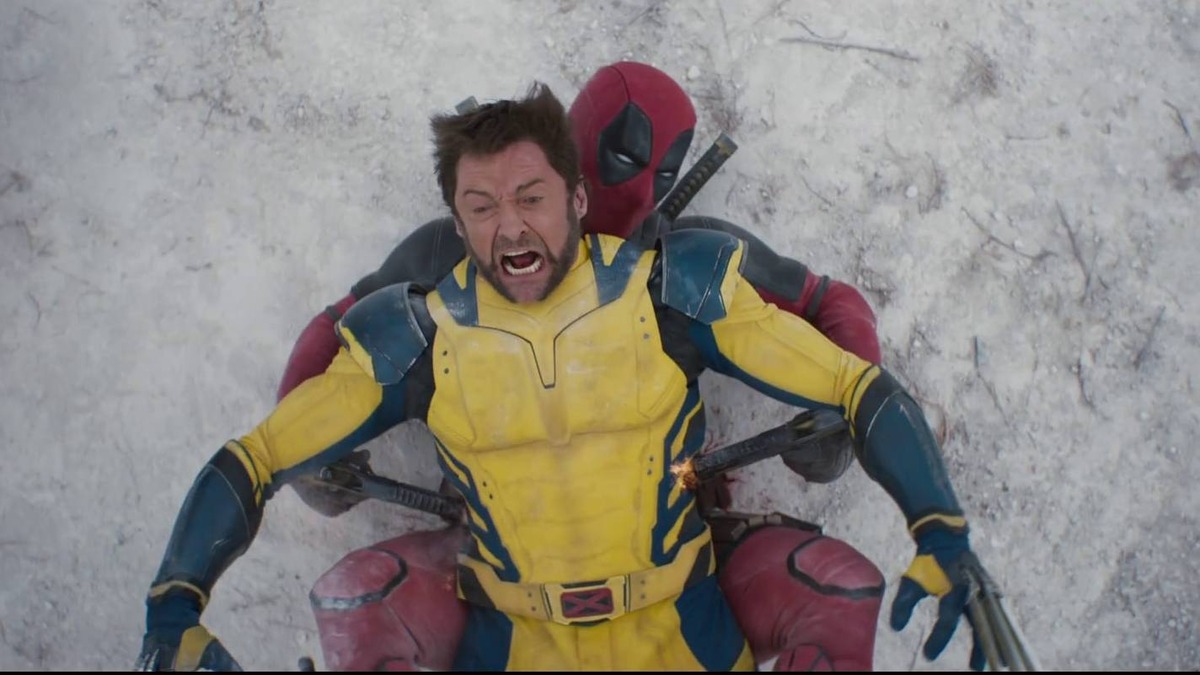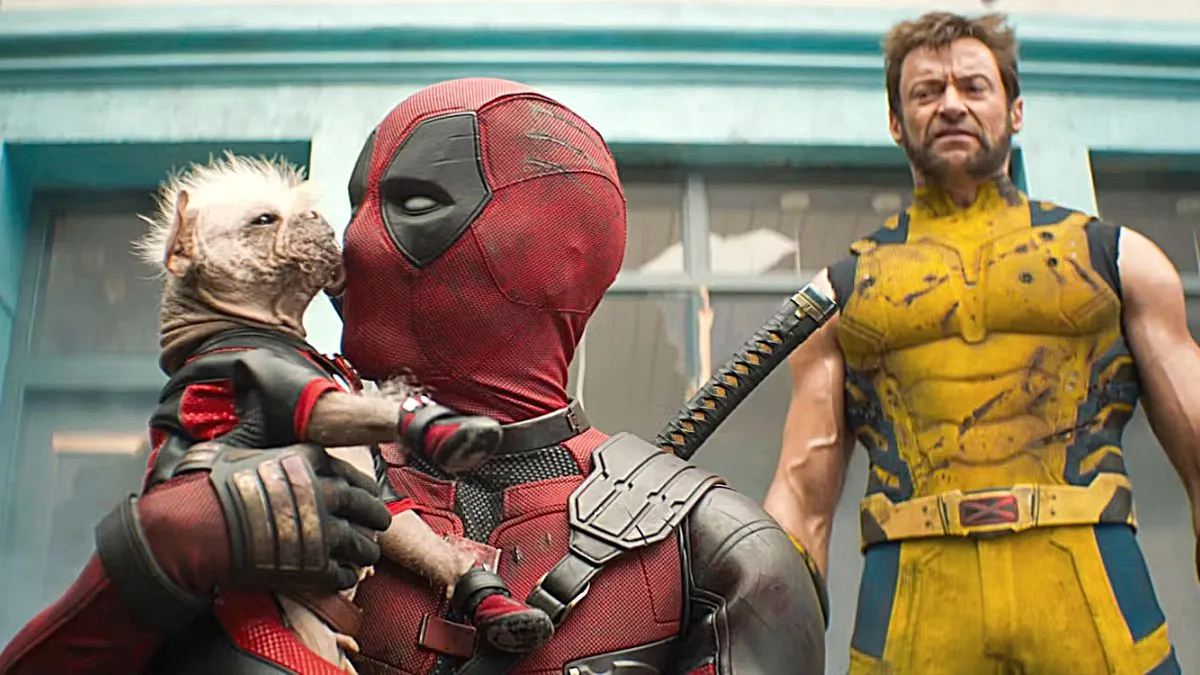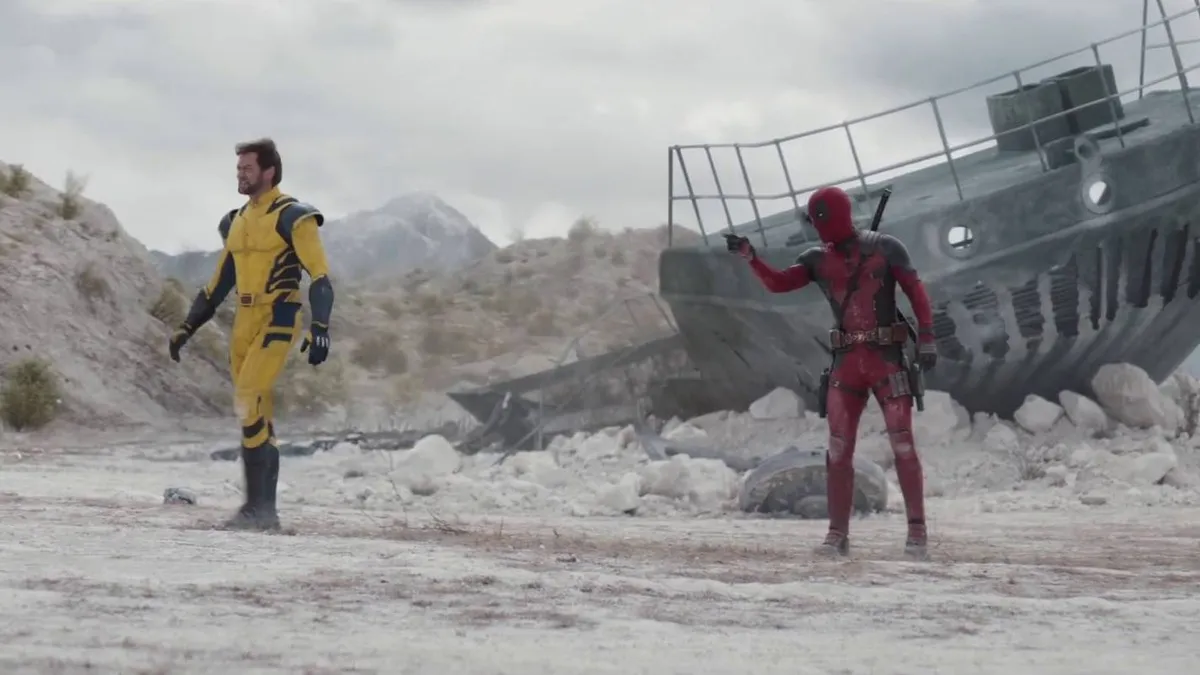You only get one chance to make a first impression, something writer and director Kate Dolan has pulled off impressively with her debut feature You Are Not My Mother.
The atmospheric and haunting combination of supernatural horror and family drama follows three generations of an Irish clan all traumatized in different ways by the same event. Hazel Doupe’s Char endures the trials and tribulations of high school life, while also dealing with her increasingly withdrawn mother Angela (played by Carolyn Bracken), who’s been suffering from mental health problems.
When Angela suddenly disappears without a trace, only to return home without explanation and possessing a very different personality, Ingrid Craigie’s superstitious matriarch Rita instantly assumes something sinister is afoot. Hazel isn’t quite in the same mythological boat at first, but that soon changes once the evidence becomes irrefutable.
You Are Not My Mother premiered at the Toronto International Film Festival last September, where it was named first runner up for the People’s Choice: Midnight Madness award. The film has also become a Top 10 hit on Netflix in the United Kingdom and Ireland since being made available to stream, and it’s coming to Blu-Ray, DVD, and On-Demand on June 21.
Ahead of the home video release, We Got This Covered has the chance to speak to Dolan about her feature-length directorial debut, the challenges of shooting in the midst of the pandemic, what comes next, and having the lead character speak the name of the title in a line of dialogue, which you can check out below.

The movie is coming to Blu-Ray, DVD, and On-Demand on June 21, but I want to ask for your reaction to how Netflix fans have taken to the film (it became a Top 5 hit in the United Kingdom and Ireland after being added to the streaming service)?
Kate Dolan: Yeah. It’s been kind of mad. To be honest, I didn’t know! We were obviously delighted, but I kind of just thought like, “Oh, yeah, more people might see the film, and that’s gonna be really nice”. But then, because Stranger Things was coming in on [the same day], so I just thought everyone would be watching that, and not watching our film! And like, I was getting loads of tweets over the weekend from people who are watching it and stuff. So it’s brilliant. Like, it’s great!
As a filmmaker, when you make a small indie film like this, a big win is if lots of people actually get to see it. Because you know, smaller movies, we don’t have the kind of marketing budget to have posters everywhere. So people know you exist. So to have it on the front page of Netflix is really, really helpful.
It’s been a long time coming as well. Nine months since the premiere, with a theatrical release in between. How do you feel now, knowing that you’re on the way to finding even more success with a home video release and Netflix releases happening within the space of a couple of weeks?
Kate Dolan: It’s kind of a really strange one because I think as a filmmaker… like, I finished post-production, our final day of post-production was probably just towards the end of July last year. So you know, you have all these kind of end of the line, finishing points that kind of never end, which is kind of funny. But then we went to TIFF [Toronto International Film Festival] and we played at Midnight Madness, and then that was a big premiere. Okay, that’s done.
And then it just keeps continuing, which is funny, because when we filmed this, that’s almost going to be two years ago in November this year. So it’s quite a weird journey, because all the different levels of it are interesting, and each step brings more interesting aspects to it. This is my first feature, so I’ve never done this kind of release for anything before, I was somebody who made short films before this. So it’s all a learning curve of all the different of steps, and it’s really nice.
Because for me, the film’s built in, but you as you say it came out on Netflix on Friday. All these new people who it’s completely new to have seen it just this weekend, which is really nice. It’s really nice to just see how it grows all the time, and you see more people watching it, which is really lovely.
Irish horror is in the middle of a boom, with movies like Grabbers, The Hallow, A Dark Song, The Hole in the Ground, and now You Are Not My Mother. What is it that makes local mythology such fertile ground for these kinds of movies?
Kate Dolan: I think our mythology and folklore is very dark generally. And so, any kind of stories that you’re even told when you’re a kid are quite dark, about people being drawn inward to this other world and not coming back. Or if they come back, everyone else they know is dead because they’ve not aged and everyone else has, and all these kind of things. So I think it’s in our DNA, all these spooky stories are told to us when we’re kids. So I think they’re just… I think the Irish as a people are very funny and humorous, but they are very dark and can be quite kind of superstitious as well. So I think it lends itself well to horror.
I think it’s funny, because there’s been a resurgence recently. Obviously we had like a very strong conservative, Catholic Church kind of ruling in Ireland up until quite recently. So I think before that, we didn’t really have horror movies, because it would be absolutely frowned upon to make a horror movie. So it’s nice that now, this next generation is getting to make all the horror movies that are more based in our very dark pagan history, as opposed to the more Catholic recent, you know, class that we had.

Scotland does a nice line in bleak dramas, which is probably because we’re a miserable and dour people, but Ireland is going all-in on the genre stuff.
Kate Dolan: Yeah, I think we’ve been very lucky with them. I think in recent years, Screen Ireland have had some project managers who were working, you know, they bring in projects, and they oversee them through developments in screen art. And I think we were lucky, there was kind of a few genre fans working within Screen Ireland, which always makes it a bit easier to make the films you want to make. So that’s been really, maybe, a part of the change as well, but I don’t know.
There’s obviously a very personal element to I Am Not Your Mother, did using the backdrop of local legends and folk horror make it easier to find a way into the story when you were developing the project, as opposed to tackling a straightforward drama?
Kate Dolan: Yeah, I think definitely the supernatural. And, you know, those kinds of things, they allow you to address those conflicting themes that you might find too much in a dream. I think that’s why I love horror really, because it allows you to play in a space where you can talk about things that are maybe too difficult to talk about in a drama, or they’re too confronting for people in a drama, or just too hard to watch, and kind of miserable. So I think if you have this supernatural element and horror elements, you’re kind of saying to the audience, “You don’t have to take this too seriously, you can enjoy it as a kind of action piece, or you can enjoy this scene, which is meant to be entertaining, and it’s not meant to too dark”.
So you can play around with that. My short film, Catcalls, is that kind of thing as well, where there’s dark themes, but I think you can have a little bit of fun with it, because it’s got monsters and things like that. So it’s like a kind of a Trojan horse. In a way you can get into darker themes, and more complex themes that people can enjoy and have fun with too.
The battle between the modern and the mythological is really at the centre of the film, have you always been interested in exploring that juxtaposition?
Kate Dolan: Yeah, definitely, I feel myself very drawn to folk tales and mythology. And I guess stories that are everlasting. And I think it’s really interesting, particularly in horror, how things that scared our ancestors can scare us now, the kind of everlasting monsters that we all find scary.
And it’s funny, when I was researching the film, even when you look at folklore in Ireland, and then folklore in other countries, even in Asian countries like in Japan, they have characters in their folklore which are similar to characters we have in ours. So it’s obviously a unifying fear that monsters were created for, that we all have in common in some way, which I find really nice. It’s like kind of a unifying fear. So I think I’m really drawn to that.
That style of horror that it feels like it could be drawn from those tales from the past. But I do love to kind of put a modern spin on it, too, and modernizing things and bringing them in, and setting them in our world, and grounding them. It can make them feel more believable. I love the idea that these things can exist in our world. So I like presenting them to be in very grounded worlds, where you kind of think they could be real.
A coming-of-age folk horror that also deals with hard-hitting subject matter in a setting we don’t see very often isn’t an easy balancing act to pull off, did the script need much in the way of refinement from writing to shooting to try and wrangle all of those elements together?
Kate Dolan: Well, it was one thing was that when we were going into making this film, it was within a scheme that Screen Ireland were doing, which was going to be a micro budget scheme. So I went into writing the script, and knowing that it had to be very low budget. So I knew the story would have to take place with minimal characters in one setting-ish, just be able to pull it off and do it justice. The more practical elements are difficult, because we just couldn’t afford some things. And there was a few creative compromises along the way.
Sometimes that can be really beneficial. And actually, when you’re kind of stripped-down, there’s not really anywhere to hide, so the actors’ performances become so important, because it’s basically all about how they can deliver the scene, just the actors in a room, as opposed to having any kind of fancy camerawork, or gizmos, or gadgets, or anything like that. So I think that was really fun to kind of create that just with the actors, and then be able to let them bring things to it as well. And it was a tricky story to balance everything as well, what you’re talking about with mental health within a family, you have to be careful to deliver that in a way that feels authentic, and it doesn’t feel exploitative or anything like that.
And that was really important to me that I wasn’t saying, you know, “People who have problems are monsters”. But, it’s more that when you’re someone coming of age in that family, it can be very scary to witness a parent who’s kind of drifting away from you, in a way. So those elements were tricky. But I think we had a great team. So hopefully it came together in the end!

So when you were speaking about the performances from the actors, a lot of heavier emotional moments between the characters, they’re almost completely unspoken, or they’re not spelled out in any sort of great detail. So that’s obviously something I can sympathize with, Irish and Scottish people will know an awful lot about that sort of thing. But were the cast given any sort of detailed instructions on how to play those scenes through the script? Or do it just come naturally through the performances?
Kate Dolan: They’re all very strong actors, particularly Hazel, who is an actor who can deliver a very internal performance. So she can kind of say one thing, but her face is saying 10 other things at the same time. And I asked her specifically, because I knew she would be able to achieve that. They really understood what I was trying to do.
And I think, as you say, Irish people and Scottish people, we all kind of know that. That idea of, you know, not talking about the elephant in the room, and just kind of glazing over it, and saying something else instead, which is easier to say. And I think all of them got that. It was all in the script, I think. And I went through the script a lot with the actors, to make sure they understood what was really being said, or not being said in certain scenes. So yeah, I’m glad you understand that kind of way of being.
Your first feature, that had a budget cap, and ended up shooting during a lockdown in the middle of a pandemic, which presumably hindered your preparation somewhat. Surely you’ll be ready for anything now? Must have been a breeze!
Kate Dolan: Oh, yeah, so fine! It’s funny now looking back, because at the time, it felt like COVID was a real thing to overcome and it was really difficult. There were all these kind of stipulations; you couldn’t use extras and all these kind of just small things, which made things tricky. But, there was also benefits, weirdly, to COVID. We filmed in a museum for the school trip, which had great production value, it’s this really beautiful building, and that they would just let us in because they were like, “This is sitting here empty every day because museums are closed because of COVID”. Those kinds of things.
Also, the actors that we had, I think definitely some of those actors probably would have been, they could have been cast in TV shows and stuff when we were filming, which would be able to pay them a lot more than we were paying at the time. And so, there was kind of benefits to that. But the crew that we wanted weren’t busy, because they had nothing else at the time, and stuff like that. So I think COVID did have its benefits. But it was tricky. The cast are great. And the crew were great. So that was a hurdle jumped over by everybody. But, yeah, the effects and stuff, that was hard. Because, obviously the set piece at the end is a bonfire on Halloween night, and we had to set it alight and build the structures.
A lot of the budget went on that particular set piece, which meant then talking to the producer. She was like, “Well, now we can’t have a Steadicam, or we can’t have tracks, because we need to spend that part of the money that we have on that”. So, it’s all about compromises when you have a low budget, and you need to achieve a certain thing, but it was definitely it was a labor of love.
There are timely and very prescient social, political, personal, and mental health themes in the story, which are split across three generations of the central family. It’s still a horror movie at the end of the day, but were you always keen to stress that these are real concerns and issues that a lot of people will instantly identify with, which then helps immerse and invest them in the supernatural stuff when it comes?
Kate Dolan: When I was writing it, even though there are some things which are uniquely Irish about it, I think the themes of it felt very universal, because I think anybody can relate to the idea. Whether we like it or not, everyone has parents. Whether they’re around or not, or whether you have them in your life, everyone has them. And I think particularly your mother… it’s a relationship that everyone can understand is a very important relationship in your life, whether they’re there or not, or whether you have them in your life or not. And I think that is universally understood.
That idea, that feeling of a parent who possibly isn’t there, or is leaving you, or the fear of that happening, even if it hasn’t happened to you. It felt like it would be definitely understood by most people, even though the mythology of what the folklore was about might not be understood by everybody. And the North Dublin of accents might not be understood by everybody! So I think we kind of banked on that. We knew that would definitely be something that, you know, a universal fear and a primal fear that we felt everyone could understand.
I saw there was a bit of confusion with the subtitles on Netflix, where “chewing gum” was called “chili bum”.
Kate Dolan: Yeah, that was so funny! I must… because I haven’t watched it on Netflix, but I must watch it and just turn on the subtitles to check how good they’re doing. Because that to me, I was like, “Oh, no, are they just like putting it into a robot who’s like YouTube? Or they’re just making up the closed captions?”. Surely our accents aren’t that hard to understand?
I don’t know. I mean, I’ve seen plenty of Irish/Scottish things get subtitled into oblivion, so it could be worse.
Kate Dolan: Hopefully they still get the general story!

I have to ask, did the title come after the script was written? Because I’m one of those people who love it when a character says the name of the movie out loud, so when Char says “you are not my mother” I literally punched the air.
Kate Dolan: That’s great. It was funny. We had that line in the script, and then the night we went to shoot, Hazel… Hazel is… she’s only like 19. But she’s a very mature, kind of, serious actor who likes to do things right. And she was like, “Are you sure about this line?”. And I was like, “No, it’s got to go in. It’s for the horror fans who want to hear the name”. She was like, “I don’t know”. But she agreed to it. In the end, we did one without as well, just to be safe. But we felt like it was gonna work. But I think the title was basically there from the first draft of the script.
I feel like titles, sometimes they just come to me. I feel like either they come to you very easily, like straightaway, or they just like take ages and ages to figure it out. So that was there yet from the very beginning. And because it felt like it just really captured the film. Although were a few times, we’ve gotten the people who’ve commented the EastEnders clip where your woman is like, “You’re not my mother!”. And she’s like, “Yes, I am”. Which is funny, too.
It’s just one of those things that people love to see in movies like that. Especially because it’s not forced, it’s organic to what’s happening at the time.
Kate Dolan: Yeah, yeah, exactly. It felt like, you know, I’m the hardcore audience that would be watching films like this. And I feel like I would really enjoy that, too. So whenever I’m writing anything, or I’m making anything, I’m thinking of the audience, the horror audience, like myself a fan, who will be watching it, and what would they enjoy? What would they find kind of interesting? So, yeah, I just kind of go with my gut on that stuff.
So one final question, just to round things off, which is both a simple one and a highly loaded one. And that’s what comes next now that you’ve put yourself on the map as one of horror’s new names to watch.
Kate Dolan: Oh, wow, thank you very much. I don’t know about that. But I’ve got two projects in development, and their scripts that are fully written now. And they’re both horror projects as well. I hope to make and be shooting another film in spring next year, in March or April, hopefully, if everything goes to plan, I think definitely just in the horror space for the next while anyway. So that’s where I’ll stay for the foreseeable future.
Speaking of people that have been staying in horror, I recently talked to Rob Savage about DASHCAM. You guys are familiar with each other as up-and-coming talents on the horror circuit. I should have passed on a message!
Kate Dolan: I love Rob! Yeah, we’ve known each other since our short films were together in some film festival. Mine was Catcalls and his was Salt. And we had actually met a little bit before that, because my girlfriend used to live in London. So I used to go over and we met a few times. But it’s been lovely kind of coming of age with Rob, because both our films were in Midnight Madness together; DASHCAM and You Are Not My Mother in September, which is really fun, then we got to hang out a lot. And he’s great. And, I think DASHCAM, I really like it. I know it’s quite a divisive movie, but I had a great time once again.
It was pretty much 24 hours after I spoke to him that all the controversy with cinemas refusing to screen it kicked off, so I was a day late getting to ask about that.
Kate Dolan: Oh my god, that was so crazy. But I texted him that day. I was like, “This is great publicity for you, man”. He was delighted. Obviously he’s like, “I made a video nasty!”, like so happy.
That concludes our interview with Kate Dolan. You Are Not My Mother comes Blu-Ray, DVD, and On-Demand on June 21, while it’s also available to stream on Netflix in certain countries, and make sure to check out our review of the movie here.

